Awareness-raising and capacity building for relevant stakeholders in Indonesia on participatory approaches to energy project design.
Many energy services in remote areas that target the ‘last mile’ end in failure. Reasons for this include: insufficient attention to the long-term costs of operation and maintenance; a ‘one size fits all’ approach that often fails to consider differing local realities and socio-cultural factors, including gender issues; lack of consideration about how an energy service will deliver wider development impact; and lack of buy-in from local stakeholders.
Building on these insights, IESR and partner organisations developed a participatory Energy Delivery Model (EDM) approach in Southeast Asia and piloted it in a community in Boafeo, Flores Island, Indonesia. The EDM Toolkit, a six-step participatory design process and two innovative tools (Delivery Model Canvas and Delivery Model Map), can be adapted for use in different contexts by local practitioners and stakeholders. The experiences gained from the Boafeo pilot illustrate the relevance and viability of participatory design approaches to a broader audience. The pilot project also included a workshop aimed at building capacity on participatory energy project design among government agencies and civil society organisations active in supporting grassroots communities in Indonesia.
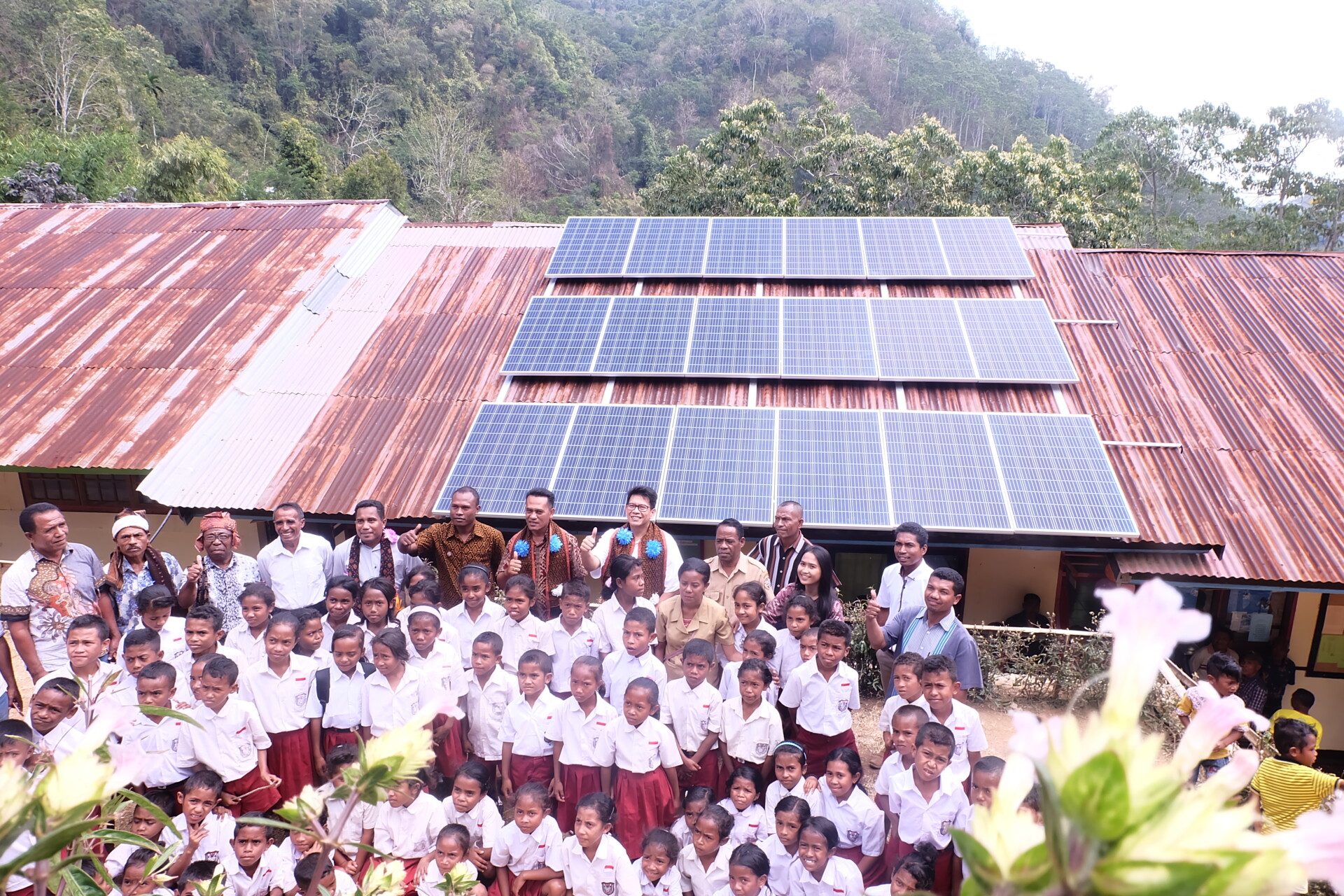
EXCHANGE NEED & OBJECTIVE(S)
The objective of the knowledge exchange was to raise awareness among Indonesian stakeholders on last mile service delivery and the role that participatory approaches can play in designing energy services for improving sustainability and development impact. In addition, the EDM approach was used to strengthen the capacity of key stakeholders in energy planning and enable them to apply the principles to future energy service delivery interventions in Indonesia.
PARTICIPANTS & TARGET GROUP(S)
The participants of the knowledge exchange were government agencies and related civil society organisations (CSOs), particularly those working closely with grassroot communities.
ACTIVITIES
The first stage was to review the activities of the previous pilot project in Boafeo in conjunction with the local project partner, AMAN. Stakeholder consultations and a village visit were undertaken to understand both the progress made and the current challenges. The previous pilot project in Flores Island had consisted of three phases: scoping the ‘energy access landscape’ for the EDM and identifying stakeholders; designing the EDM and putting forward three value propositions (VPs) on energy access and its impact; implementing the EDM design (only partially completed). The identified value propositions were electricity access for better education, electricity access for coffee production improvement, and lighting for community members.
The second stage consisted of a re-introduction workshop for all the stakeholders involved in Boafeo pilot project, to address ongoing challenges, verify and validate monitoring data and agree on future activities.
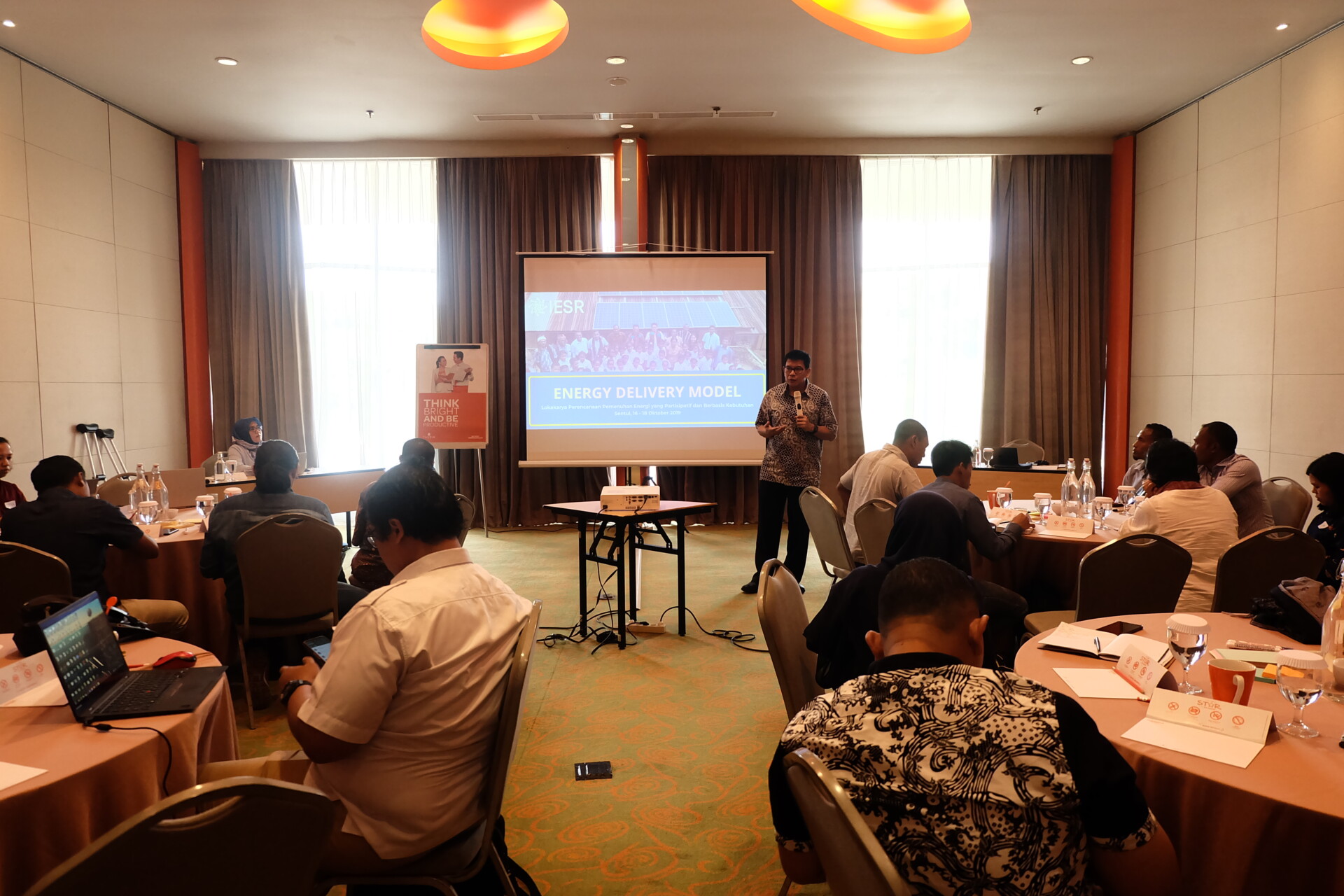
In the third stage, the knowledge exchange contributed to implementing the value proposition “electricity access for better education”. A 4.9 kWp rooftop PV system with batteries was installed on Boafeo Primary School to support learning during the hours of darkness, because students have only limited access to light in their homes. In addition, teachers were trained in brain-based and interactive learning methods to improve their teaching processes.
Finally, in October 2019, an EDM workshop for stakeholders was organised to share lessons learned from the EDM implementation and to build capacities among participants focusing on why and how to apply the EDM process, design and toolkit. Participants came from the Ministry of Energy and Mineral Resources (MEMR), the Ministry of Development of Village and Disadvantaged Regions (MDVDR) and from different CSOs, such as the Indonesian Consumers Foundation, Indonesian Women's Coalition, Indigenous People Alliance, and Pemulih Nusantara Foundation. A total of 30 participants from five regions in Indonesia took part. Representatives from the community of Boafeo involved in the EDM process also participated in the three-day workshop, sharing their own experiences and perspectives.
RESULTS & IMPACT
Participants learned and practiced how to design an EDM based on the local context and from a non-energy perspective. They were well-informed and trained on the EDM toolkit. The mapping of needs versus desires, which is the starting point of the EDM process, proved particularly relevant for the participants.
The workshop successfully raised awareness and interest among high-level staff from MDVDR, who expressed an interest in integrating the EDM approach into their village development programme. In bilateral talks after the workshop, MDVDR considered EDM as one potential approach for their initiative for village development which was planned as a pilot project for 2020. (Unfortunately, due to the Covid pandemic, further discussion between MDVDR and IESR ceased after the end of the project).
The use of rooftop-generated solar power in Boafeo Primary School has become a best practice example for providing quality education using renewable energy, and illustrates how EDM can be a suitable approach for energy provision in Indonesia. Furthermore, it is expected that teachers will apply the brain-based learning method they were trained in to improve their teaching processes. Progress on more creative learning sessions has been reported, and teachers are now more inclined to use audio-visual support and everyday objects (such as leaves and paper) to complement textbooks and slides.
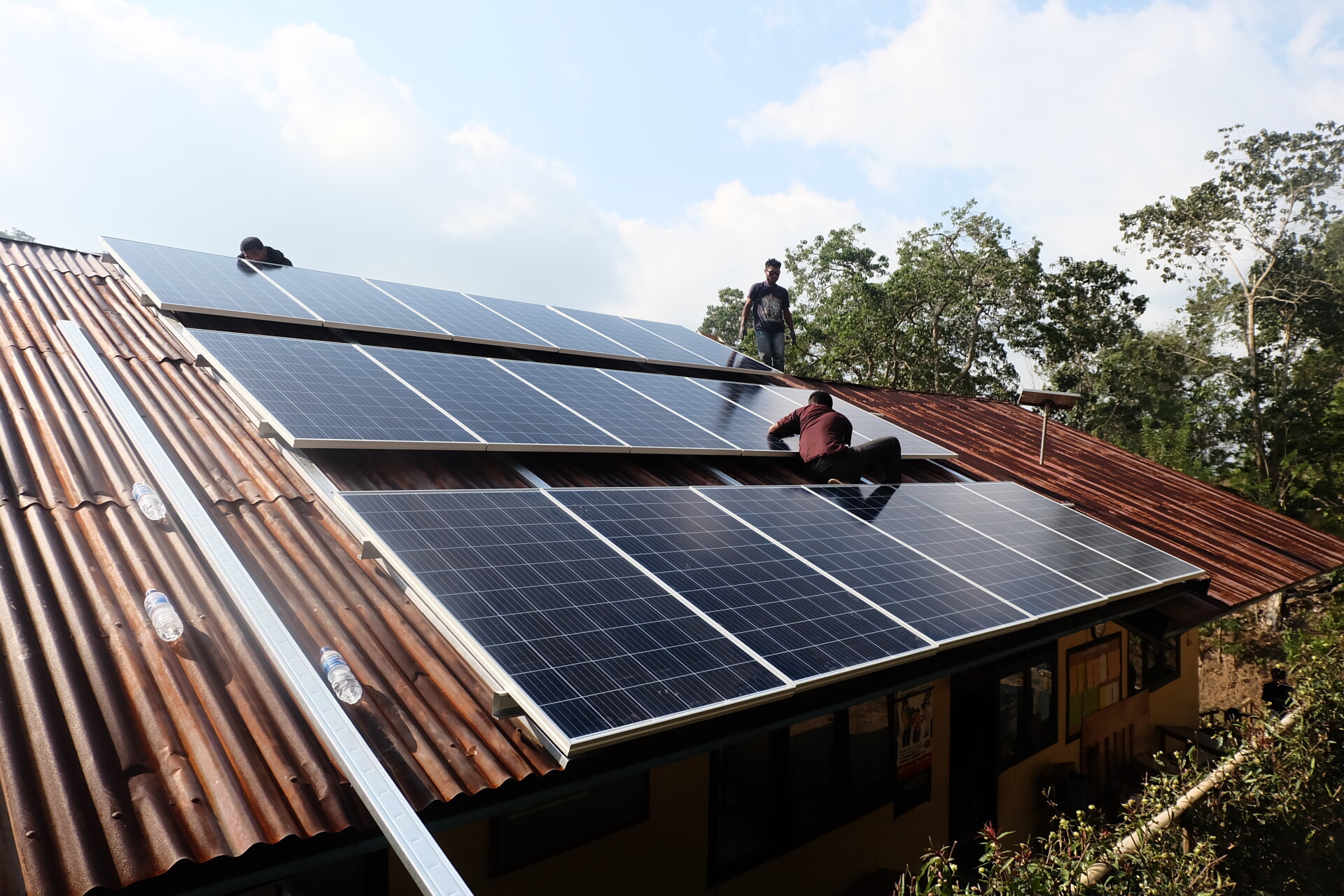
LESSONS LEARNED
IESR liaises with the local chapter of AMAN in Boafeo on a part-time basis only. To ensure the project’s sustainability, a dedicated community facilitator could be appointed. Since Boafeo is in a remote location, connections and networking with other communities or organisations is challenging.
Additionally, intensive engagement and technical assistance are important to promote the adoption of EDM at government level and by other organisations. Regular workshops for stakeholders could also play a role and should be followed by bilateral communications. IESR will continue to nurture the relationship established with MDVDR.
You can download the detailed case study at the top of the page!
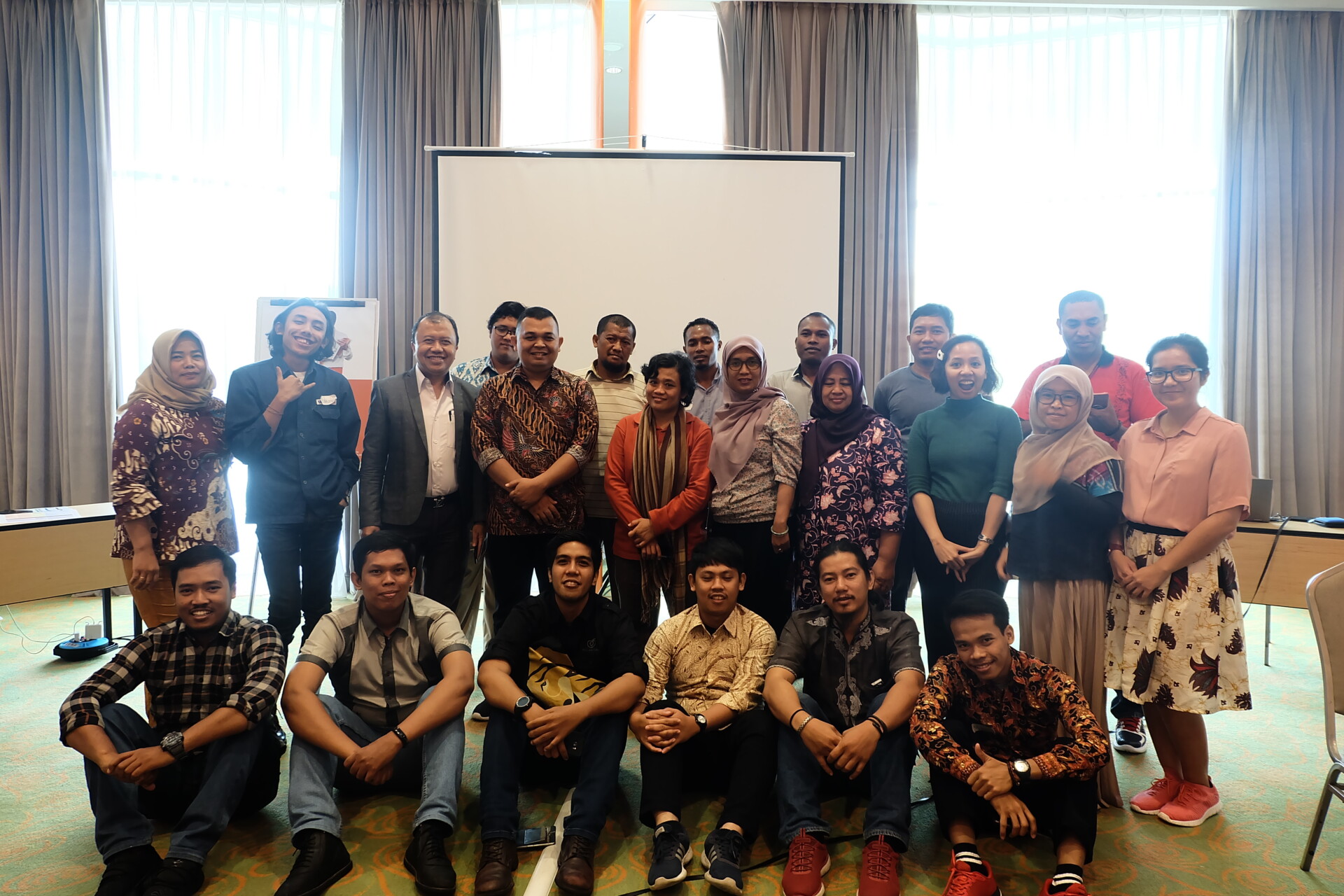
Project Summary SP_025
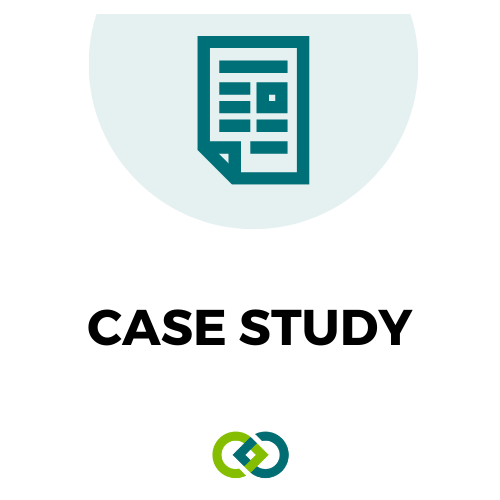
Projects in same country
Exchange: Capacity Building for Micro Hydro Electronic Load Controller Technicians in South/Southeast Asia
This exchange activity aimed to increase the capacity of local engineers and technicians to deal with electronic load controller operation and maintenance
Implementation of Low Head Micro Hydro to Support Clean Water Supply for a Boarding School
This project aims to install a 10 kW low-head Micro-Hydro Plant (MHP) along a riverside, generating power for a nearby school